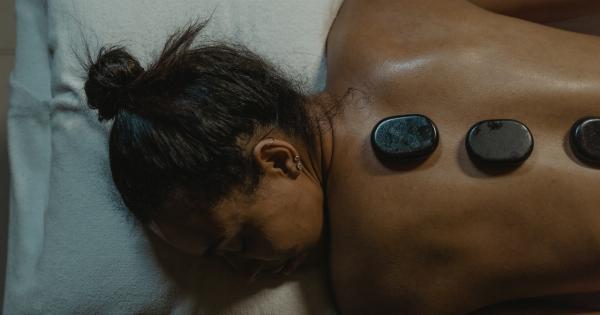Our biological clock, also known as the circadian rhythm, is a 24-hour cycle that regulates various bodily functions and processes.
This internal clock is influenced by external cues, such as light and darkness, and plays a vital role in determining our sleep-wake cycle, hormone production, metabolism, and overall well-being.
The Importance of Circadian Rhythms
Circadian rhythms are crucial for maintaining optimal health and functioning.
Disruptions or irregularities in these rhythms can lead to a variety of health issues ranging from sleep disorders and mood disorders to metabolic disorders and cardiovascular problems.
Research has shown that when we align our daily activities with our natural circadian rhythms, we can improve our sleep quality, enhance cognitive function, boost energy levels, and even strengthen our immune system.
Introducing Chronotherapy
Chronotherapy is a rapidly growing field that utilizes the knowledge about circadian rhythms to optimize the timing of medical treatments and interventions.
By considering the specific timing of various biological processes, chronotherapy aims to enhance treatment efficacy and minimize side effects.
The concept of chronotherapy is not entirely new. Historically, it has been used in the treatment of certain conditions, such as asthma and hypertension.
However, recent advancements in circadian biology and genetics have allowed scientists and physicians to delve deeper into the potential applications of chronotherapy across a wide range of diseases.
Chronotherapy in Cancer Treatment
One area where chronotherapy has shown promising results is in the treatment of cancer. Traditional chemotherapy drugs are often associated with significant side effects, including nausea, fatigue, and hair loss.
Chronotherapy seeks to alleviate these side effects by administering medication at specific times of the day or night when the body is most receptive to the treatment and least prone to adverse reactions.
Studies have revealed that chronotherapy in cancer treatment can enhance drug effectiveness by targeting the body’s natural cycle of cell division and DNA repair.
For example, administering certain chemotherapy medications during the nighttime, when the body is more active in repairing damaged DNA, may increase treatment efficacy while reducing potential harm to healthy cells.
Chronotherapy for Sleep Disorders
Sleep disorders, such as insomnia and sleep apnea, can disrupt a person’s circadian rhythm and negatively impact their overall well-being.
Chronotherapy techniques, including light therapy and scheduled light exposure, can help realign the body’s internal clock and improve sleep quality.
Light therapy involves exposure to specific wavelengths of light, typically in the form of a lightbox or light-emitting device, to regulate melatonin production and reset the circadian rhythm.
By exposing oneself to bright light in the morning and avoiding bright lights in the evening, individuals can adjust their internal clock and promote better sleep at night.
Chronotherapy for Mood Disorders
Mood disorders, including depression and bipolar disorder, can significantly disrupt circadian rhythms, leading to irregular sleep patterns, fatigue, and altered hormone levels.
Chronotherapy approaches, such as dawn simulation and sleep deprivation therapy, have shown promising results in managing these conditions.
Dawn simulation involves using a specialized light-emitting device that gradually increases light intensity to mimic a natural sunrise.
This therapy helps regulate the body’s production of melatonin, promoting a more balanced circadian rhythm and improving mood and energy levels.
Sleep deprivation therapy, on the other hand, involves strategically inducing short periods of sleep deprivation to reset the sleep-wake cycle.
This therapy is typically used under medical supervision and has been found to be effective in bipolar disorder management.
Chronotherapy in Metabolic Disorders
Emerging evidence suggests that chronotherapy may play a role in the management of metabolic disorders, such as obesity and diabetes.
Our metabolism follows a diurnal rhythm, with specific periods of increased insulin sensitivity and energy expenditure.
By incorporating chronotherapy principles into the treatment of metabolic disorders, healthcare professionals can optimize medication timing, meal schedules, and physical activity to better align with an individual’s circadian rhythm.
This approach may enhance weight loss, improve blood glucose control, and reduce the risk of long-term complications associated with these conditions.
Chronotherapy for Jet Lag
Jet lag is a temporary condition caused by rapid travel across multiple time zones, disrupting the body’s natural circadian rhythm. Common symptoms include fatigue, insomnia, irritability, and cognitive impairment.
Chronotherapy techniques can help reduce the effects of jet lag and aid in faster recovery.
Gradually adjusting sleep patterns, meal timings, and exposure to light at the destination can aid in the synchronizing of the body’s internal clock with the new time zone.
Light exposure, melatonin supplements, and strategic napping can also assist in resetting the circadian rhythm and minimizing the symptoms of jet lag.
Conclusion
Chronotherapy holds tremendous potential in optimizing healthcare interventions and treatments by harnessing the power of circadian rhythms.
From cancer treatment to sleep disorders and metabolic disorders, aligning medical interventions with an individual’s internal clock can lead to improved outcomes, reduced side effects, and enhanced well-being.




























